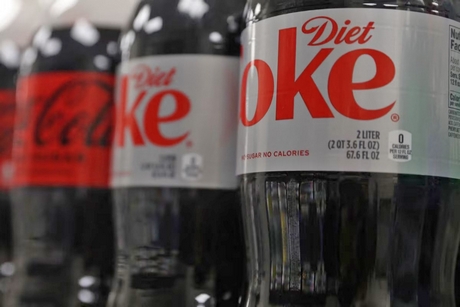 |
| The artificial sweetener aspartame found in soft drinks, ice cream and chewing gum is being considered for inclusion on the list of carcinogens. |
The International Agency for Research on Cancer (IARC), part of the World Health Organization (WHO), said it will add the sweetener aspartame to its list of substances that can cause cancer.
Aspartame has been widely used since the 1980s as a sweetener in foods and in diet soft drinks, chewing gum, breakfast cereals, and even cough drops.
IARC has conducted a safety assessment of the artificial sweetener aspartame found in some soft drinks, ice cream and chewing gum and will publish a report in July 2023.
IARC is still considering whether aspartame will be listed as a probable carcinogen or as a known carcinogen.
Not only IARC, the Joint Expert Committee on Food Additives (JECFA) is also considering adding aspartame to the list of substances that can cause cancer and is expected to announce its decision on July 14.
However, this decision by IARC may spark a wave of controversy because including aspartame in the list of substances that are likely to cause cancer may cause concern among consumers.
In the past, there have been other additives added to the list of substances that pose a risk of causing cancer, causing consumer boycotts, affecting food manufacturers and forcing them to change their recipes or use other alternatives.
According to US and Japanese regulators, industry and regulators are concerned that the simultaneous announcement of decisions on aspartame by both IARC and JECFA could cause confusion.
Recently, Ms. Nozomi Tomita - an official of the Japanese Ministry of Health , Labor and Welfare sent a letter to the Deputy Director of WHO to call on the two agencies to coordinate efforts to review aspartame to avoid any confusion or concern for consumers.
Although there is much controversy about its consumption, there have been several studies that have shown that aspartame causes cancer.
Specifically, a study conducted last year in France with the participation of about 100,000 people showed that people who consumed large amounts of sweeteners, including aspartame, had a slightly higher risk of cancer than usual.
A study by the Ramazzini Research Institute (Italy) in the early 2000s also reported some cancers in mice and rats linked to aspartame.
In a study published in the Journal of the American Medical Association, scientists from the University of Manitoba (Canada) warned that children of mothers who used a lot of artificial sweeteners during pregnancy were twice as likely to be overweight or obese in the first year of life compared to children whose mothers did not use this additive, which is always advertised as good for health.
Recent research results show that obese people will die about 8 years earlier. The reason is that obesity increases the risk of 236 diseases, including many dangerous diseases such as high blood pressure, diabetes, coronary artery disease, osteoarthritis, stroke... In particular, obese people have an increased risk of 236 diseases, including 13 types of cancer.
The results of a survey by the British Cancer Prevention Organization on 3,293 participants showed that up to 75% of these people do not think that obesity can cause cancer. While in reality in the UK, 1 in 20 people diagnosed with cancer are obese.
Similarly, in the United States, obesity is the second leading cause of cancer after smoking and is predicted by experts to become the leading cause in the next decade. Every year, about 1.7 million Americans are diagnosed with cancer, of which up to 40% are related to being overweight or obese.
BUI THANH (according to tuoitre.vn)
Source link





































































































Comment (0)